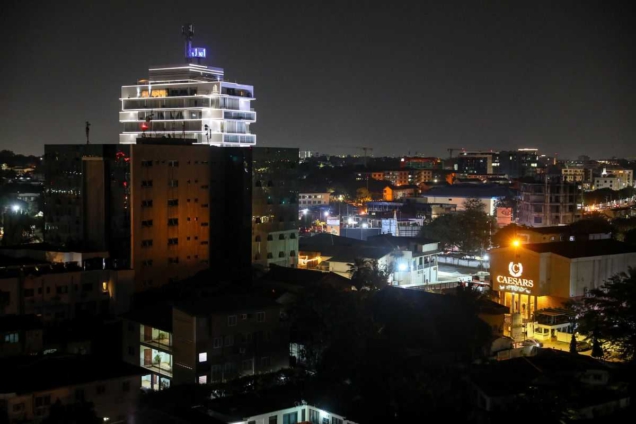A group of Ghana’s independent power producers has rejected a proposal from the government to include $1.4 billion in arrears as part of the nation’s external debt restructure, while pushing authorities to honor payments that start coming due Friday.
The Independent Power Generators of Ghana — an umbrella association known as IPP, which represents eight foreign and one local power suppliers — is asking the government to meet the payment it owes to six of its members, or face the possible shutdown of power plants, Elikplim Apetorgbor, the group’s chief executive officer, said in an interview Wednesday in Accra. The money, he said, is needed to service bank loans and pay input suppliers.
“Our members reject any notion of restructuring their arrears or claims as part of the ongoing or any future debt restructuring program,” Apetorgbor said. “Our members are accruing associated penalties on huge arrears with suppliers and some are in default of their loans service with banks since the start of March. Clearly this is not sustainable.”
The companies owed are Aksa Energy, Amandi Energy, Karpowership Ghana, Sunon Asogli, Cenpower Generation and Cenit Energy. Together with Meienergy and Trojan Power, these suppliers provide 2,154 megawatts of the nation’s peak demand of 3,558 megawatts, according to the association. A ninth member, Early Power, is yet to connect its 400-megawatt plant to the national grid.
The group has been at odds with the government since Minister of Finance Ken Ofori-Atta first communicated his intention to restructure the independent producers’ receivables in a Feb. 13 letter, Apetorgbor said. The association followed with a response earlier this month, objecting to the plan.
A spokesperson for the finance ministry couldn’t immediately respond.
Ghana owes the power debts through its state-owned energy distributor Electricity Co. of Ghana. The company struggles to pay producers on time because it loses about $580 million of its revenue annually to transmission leakages, illegal connections and unpaid bills, according to the Ministry of Energy.
The West African nation is restructuring most of its public debt, which stood at about 575.7 billion cedis ($47 billion) by the end of November, to qualify for a $3 billion financial aid package from the International Monetary Fund.
As part of the broad restructuring, the government has proposed to treat independent power suppliers’ receivables as external debt, together with bilateral obligations, eurobond and commercial term-loan components of the 382.7 billion cedis of foreign debt. Creditors face a haircut of as much as 50%, according to S&P Global Ratings.
“Our association is prepared to engage with government on a sustainable payment schedule with regard to the arrears,” Apetorgbor said. “Restructuring is an option that cannot be negotiated because it will basically spell doom for our plants.”
Latest Stories
-
Trinity Oil MD Gabriel Kumi elected Board Chairman of Chamber of Oil Marketing Companies
7 minutes -
ORAL campaign key to NDC’s election victory – North America Dema Naa
25 minutes -
US Supreme Court to hear TikTok challenge to potential ban
30 minutes -
Amazon faces US strike threat ahead of Christmas
1 hour -
Jaguar Land Rover electric car whistleblower sacked
1 hour -
US makes third interest rate cut despite inflation risk
1 hour -
Fish processors call for intervention against illegal trawling activities
1 hour -
Ghana will take time to recover – Akorfa Edjeani
2 hours -
Boakye Agyarko urges reforms to revitalise NPP after election defeat
2 hours -
Finance Minister skips mini-budget presentation for third time
2 hours -
‘ORAL’ team to work gratis – Ablakwa
2 hours -
Affirmative Action Coalition condemns lack of gender quotas in Transition, anti-corruption teams
3 hours -
December 7 election was a battle for the ‘soul of Ghana’ against NPP – Fifi Kwetey
3 hours -
Social media buzzing ahead of Black Sherif’s ‘Zaama Disco’ on December 21
3 hours -
Afenyo-Markin still suffering from the massive defeat – Fifi Kwetey
3 hours

